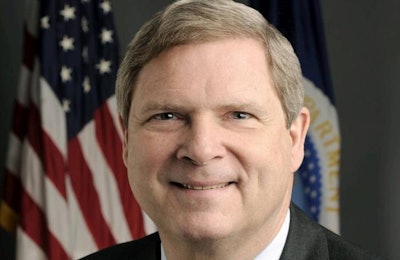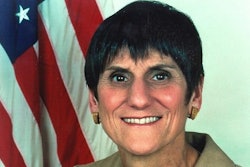
Tom Vilsack admits that when he became the U.S. Secretary of Agriculture under President Barack Obama, he didn’t fully know what he was getting himself into.
Now Vilsack is poised to return in his role as the leader of the U.S. Department of Agriculture (USDA), but there are still things that have him concerned. Vilsack was again nominated for the secretary’s job by President Joe Biden, who as vice president served with Vilsack as a member of Obama’s administration from 2013 to 2017.
The U.S. Senate held a confirmation hearing for Vilsack, who has spent the past four years as the president and CEO of the U.S. Dairy Export Council, on February 2, but a vote to confirm him has yet to occur.
In advance of the hearing, Vilsack spoke on January 28 at the virtual Biosecurity, Infectious Disease and the Animal-Human Interface conference, hosted by the Coalition for Epi Response, Engagement and Science (CERES).
Vilsack is grateful that he was afforded the rare opportunity to return to the helm of the USDA, and while he appreciated the opportunity the first time around, his perspective is different and one of first-hand knowledge.
“I’ve been telling people the first time I was offered this opportunity, I was obviously naïve,” said Vilsack. “I didn’t fully understand or appreciate the scope and the significance of the department of Agriculture but I went into the job enthusiastic and hopeful and excited. This time I go into this job fully understanding and appreciating the breadth of importance of the department and the work that it has to do.”
When asked about what “keeps him up at night” as he prepares to return to his former role, he mentions potential biosecurity threats and other problems the United States could face on a global scale, it was four domestic areas that he emphasized the most. He stated all four of those concerns in the form of a question.
Those are:
- “Can we respond to the challenge of COVID in a way that minimizes the damage to people and to the economy?”
- “Can we be a department that provides access to its programs to everyone, not just to a select and privileged few?”
- “Are we in a position to be a major driver of transformation in agriculture and rural life that helps to lead the country to a better place as it tackles climate change?”
- “Can we assist and help in transforming that rural economy so those moms and dads who are watching their sons and daughters and grandkids leave their small town or their community for a lack of opportunity would be able to welcome them back, or at least offer them the opportunity for a meaningful life in these small towns or in that rural place?”
Vilsack concluded by saying he would place “serious focus” on swift action to minimize some of those challenges.


















